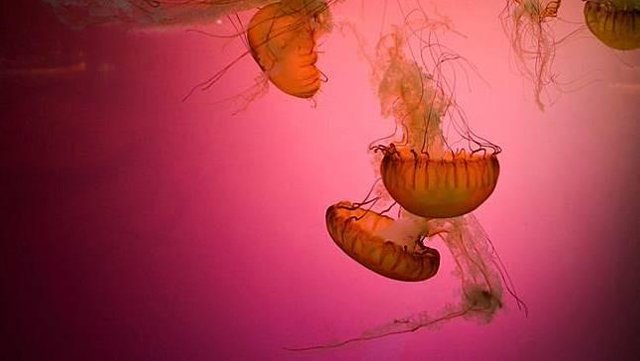
The jellyfish have no brain except the simple nervous system. Even so, jellyfish including animals that can sleep well you know.
A recent study found that jellyfish can enter a state of sleep. This research becomes interesting, because the jellyfish became the first animal with no central nervous system, which can sleep.
These findings can reinforce the theory that sleep is a matter of nerves only. Sleep may be something a nervous system can experience in a network, though not complex.
Researchers have long tried to reveal what sleep is really and how this behavior evolved. Especially in animals that have a simple nervous system. Several years ago, research was conducted on the Caenorhabditis elegans worm, which had only 302 conditions and a simple centralized nervous system.
Apparently, Caenorhabditis worms also exhibit resting sleep-like behavior. Scientist, a kind of Claire Bedbrook, a doctoral bioengineering student at the California Institute of Technology, thinks, what about animals whose nervous system is simpler than Caenorhabditis worms.
Ravi Nath, one of the study's authors, then mentions the jellyfish. Researchers then examined the jellyfish in the laboratory of biologist Lea Goentoro. He found that the genus Cassiopea seemed less active at night. Cassiopea settled in the bottom position up at the bottom of the tank. After investigation, they suspect the jellyfish is sleeping.
But it must be sure whether the behavior is something with a standard criterion whose name sleeps, namely: decreased activity that can be quickly reversed, unlike coma or loss of consciousness; the response to the stimulus is less than when it wakes up; and homeostatic rules, meaning there is a kind of innate drive to sleep and that the animal needs sleep to function.
Everything is measured. The result, jellyfish body pulse fell 32 percent at night. But when given food in the middle of the night, suddenly pulsating like during active daylight. That is, they can quickly realize. So did his response to the stimulus was more reduced.
When homeostatic examined, by disturbing the jellyfish when 'rest' turns out the next day there is a problem in the pattern of his pulse. Like if we are less rest and need to sleep.
The question is, does this jellyfish sleep the same as the higher and more complex animal sleep behavior? Because there are aspects of genetics and molecules that also affect sleep, such as worms, flies, zebra fish, and humans.
Of course the expert can not look for the genes in the jellyfish. So they then added melotonin and antihistamine pyrilamine to the water of the jellyfish, two substances that make people drowsy. Apparently, the jellyfish also become less active. Could be, sleeping in the oldest animals and humans have the same biological roots.
In the future, the team will use electrodes to track the activity of jellyfish during sleep. They also want to know whether other jellyfish species are asleep. Likewise, they want to know if sponge alias sponge is also sleeping, because sponge has absolutely no nervous system, despite containing genes and imperfect proteins, like those in other animal nervous systems.
Follow me @cekblack
Follow me @
Downvoting a post can decrease pending rewards and make it less visible. Common reasons:
Submit
Good choice, my friend, you are wonderful
Downvoting a post can decrease pending rewards and make it less visible. Common reasons:
Submit
Thanks you 😂
Downvoting a post can decrease pending rewards and make it less visible. Common reasons:
Submit
Congratulations @cekblack! You have completed some achievement on Steemit and have been rewarded with new badge(s) :
Click on any badge to view your own Board of Honor on SteemitBoard.
For more information about SteemitBoard, click here
If you no longer want to receive notifications, reply to this comment with the word
STOPDownvoting a post can decrease pending rewards and make it less visible. Common reasons:
Submit